In literature, the philosophical - lyrical nature often covers all the content described in the work, from eternal issues such as: happiness, love, life - death, ... to ordinary things in life such as: an emotion, a state, a small story of life ... Therefore, philosophy is sometimes a profound issue but sometimes it is just a simple, gentle but profound thing. With "The Electric Pole in the Night", Hoang Viet Quan has brought to readers aesthetic vibrations in the second aspect.
Some people may wonder, this is a short story genre, its method of expression is narrative, so why does Hoang Viet Quan's work contain philosophical - lyrical elements? That's right! Lyricism is a characteristic of the poetry genre but it is not exclusive, it is also present in narrative prose. Literature is always moving and developing, in that process genres have an interaction and borrow some elements from each other to increase their ability to express themselves, for example, poetry can go into prose and then in poetry there are narrative elements.
The short story "The Electric Pole in the Night" is a typical example. The whole story is still led by the situation, still sketches the characters with just enough strokes for the reader to imagine, still has neatness and conciseness in the way of telling with the beginning and the end. However, the lyrical nature permeates the writing page through the flashback of the girl named Hoa telling about her own unrequited love, having loved for a long time and then feeling hurt and embarrassed when realizing that there are couples around; only she is alone! The story has no conflict, no explosive climax.
But the unique thing is that the narrative content is lyrically expressed by Hoang Viet Quan through the image of an electric pole, and it is an electric pole at night. That is the rhetorical technique of silence multiplied twice in expressing the content and ideas of the work. And the philosophy of human affairs just overflows beyond the framework of six small pages of the story.
At the beginning, the writer immediately got to the point: "In front of my house, looking out onto the street, I still see an electric pole standing alone on the other side of the street. No matter how hot the sun is, how much rain is pouring down, or how cold the winter wind is, the electric pole still stands tall, supporting the parallel wires running along the street." It is just a pure observation and description of a familiar image. Every electric pole is buried upright, every electric pole carries parallel wires on its body.
But it seems that the adjectives: "lonely", "towering", "harsh sunshine", "falling rain", "cold and bitter", "still"... are linguistic signals, suggesting a hidden meaning. They are all descriptive words, emphasizing the emotions of the endurance, the level of endurance of the electric pole. Because right after that, the writer affirmed the next quality "The electric pole seemed to silently and voluntarily light the way for them to the theater, the cinema, especially to the long park by the poetic river"; that is the voluntary awareness of one's duty in the role of a witness - an unwilling witness to the couple's happiness of others.
Then, when looking back at its lonely, isolated status, it "pallid, trembling" in "endurance", in patience "without a word of reaction". In that situation, it still nobly shines in the night even though its heart is "silently sad" - a polysemous image, clinging to the reader's mind. The electric pole has stepped out of the field of inanimate object identification to take on the form of a character with a sensitive soul and heart.
It is present throughout Hoa's silent love. Because the person she loves is madly in love with a girl in the lower class. The passion and sublimation of their feelings during the times of walking, watching movies, sitting by the bushes or enjoying the breeze, they do not forget to choose a location "right behind the electric pole". Every time like that, Hoa "feels a sharp pain", "secretly wipes away her tears", secretly goes to a friend's house to distract herself. Hoa loves him but Hoa accepts that she will also be silent like that electric pole, seeing everything, feeling everything and then suppressing it in her heart with endurance.
Then, after graduating from high school, he joined the army, the following year his girlfriend went to university, and Hoa chose to stay home and become a seamstress. The turning point of that choice was also an unexpected turn in love. His girlfriend left him to run after a student from a powerful family in Hanoi. Their quarrelsome breakup also took place across the street, where there was an electric pole. He pointed at the high-voltage electric pole, swearing something that Hoa could not hear, but with the intuition of someone who always had deep feelings for him, Hoa had a hunch that he swore about something sacred. Perhaps it was the feminine hunch of a heart filled with one-sided love that once again tied Hoa up and led her to a deep and ignorant voluntary love.
"From that day on, every night when it was quietest, I would cross the street and sit by the electric pole, remembering him." It was just a one-way memory in my heart. Hoa did not express it, did not show it. That action of Hoa's happened so often, so regularly that "the electric pole became so familiar" that Hoa thought "he had really incarnated into it".
Then, "Hoa cried, Hoa whispered and confided, telling him so many childhood memories". Then Hoa "encouraged and comforted him, praying that her love would help him transform back into a flesh-and-blood human like he was in the past".
Even, there was "a winter night, the wind was so cold, Hoa hugged the electric pole and cried, thinking it was warming him". Reading up to here, honestly, from feeling pity, surprise and anger for the character who was infatuated and sentimental, I felt a bit uneasy with another feeling that was not at all pleasant when Hoang Viet Quan created and built a character who lived too far from the ground, somewhat like a reformed opera or fairy tale.
Just when my emotions were somewhat let go of the story, the illusionary, dream-reality elements in his narrative style made me feel goosebumps, my eyes wide open as I read his story: "One night, while hugging an electric pole, crying for you, for me, I suddenly felt the electric pole shiver, move, and break out in cold sweat. My whole body trembled. Oh my God! Maybe a miracle has happened? Have you come back to life? Has my love touched you? Oh my God! Please come back to life and come back to me. Why did you transform into an electric pole and suffer? Poor you! I have waited for you for countless seasons of falling leaves, do you know that?"
The entire monologue in the state of chattering, in the delirious state of the character Hoa shows that her mood is tormented, her resignation to wrap him up, cherish, preserve, and love him for her own heart has exceeded the threshold of silence. The door of her heart can no longer be locked but is broken open by the waves of her heart.
And the unexpected situation, the attraction that Hoang Viet Quan led the reader around for quite a long time has come. The character of Hoa's man has appeared. Right when Hoa's mood was like delirium, he appeared, making Hoa "flustered", "trembling", tears streaming down, angry, Hoa "limp as if collapsing at his feet".
However, contrary to the feeling of surprise and intense surge due to the misunderstanding of faithful love, her steadfast waiting has made him reborn, he has returned and she will be compensated by the boy's dry voice: "Why are you crying?", "Why are you out here?" "Where is your house?".
Only when Hoa hugged him, sobbing and screaming in horror when she realized that he had lost an arm; only then did he realize in shock that the girl standing in front of him was his old high school classmate. But the next question was like a needle piercing deep into his flesh, "Why did Hoa come out here?". Hoa was stunned by his unintentional, cruel question and was still struggling in the deep lake like someone about to drown when a stream of water rushed up, splashed straight into her face and drowned her to the bottom of the lake when "the girl with one leg who had been standing in the dark all this time" was run over, helped towards Hoa and introduced "this is Loan, my wife".
Everything happened so fast, Hoa didn't have time to explain, didn't have time to release the emotions she had been suppressing for so long; and most importantly, Hoa didn't have time to calm down her emotions about his physical appearance or the sincerity of her infatuation and love over the years that had made the electric pole shed its lifeless bark and revive him, before she was "dizzy and lightheaded" at the appearance of him and his partner.
His voice was still even, "We once made a sacred vow by that electric pole. But war and time have helped me understand that everyone has the freedom to choose a life partner that suits their personality and circumstances," that he met Loan when she was a youth volunteer, bravely bathing in the Gianh River to make a marker pole. After that, Loan was injured, losing a leg, and he was no longer able to use his hands. They held a wedding right on the battlefield so they could rely on each other more.
His story is touching, reasonable, a fair happiness for the injuries from first love, a worthy compensation for the losses from the long war. It is only unfair to Hoa - to Hoa alone. Closing the work are two contrasting images. That is "the wooden crutches of the husband and wife tapping on the road with steady, steady steps. The two of them lean on each other, helping each other through the halo of electric lights". And that is the image of Hoa alone when she returns home.
Reading the last lines, closing the story, my heart was filled with echoes: "Out there, the wind began to blow fiercely against the electric pole. Only now did I realize: For a long time, I had transformed myself into an electric pole at night, standing alone on the other side of the street without even knowing it."
Yes, the philosophy of the story was subtly wrapped up through Hoa's belated self-awareness. It was pity, it was the confusion in the realm of love that lingered in the spiritual prison she herself had created. Hoa cried - cried for the seasons of falling leaves with her silent love for him. She even exiled herself to hug the base of an electric pole every winter night with the hope that her love would transform the inanimate electric pole and bring him back to her after the revival of her broken first love. That was the end of her illusions. And then, when she met him, it was the pale streams of water flowing through her fingers: he didn't recognize her right away, he didn't know why she cried, he didn't know why she stood next to the electric pole at night, and he innocently introduced his wife - his happiness. He didn't act wrongly, he himself was not at fault, he wasn't ungrateful. It's just that he never had the chance to know the heart, love and sincerity that the girl had and still has for him for so many years. If only Hoa hadn't turned herself into a power pole, and hadn't been a silent power pole, silently in the dark night full of patience, then the message of love would have been transmitted, then the sharing would certainly have found a sympathetic voice.
I also wondered, is that the philosophy of life that Hoang Viet Quan wants to convey through his work or is it the confession, the revelation of the author's image through that story. Writing up to here and at this moment, his face appeared, I wondered: Hoang Viet Quan, how many times have you stood and watched and hugged the electric pole yourself at night like that?!
Luu Khanh Linh ( Cam An High School, Yen Binh, Yen Bai )
Source: https://baoyenbai.com.vn/16/349198/Triet-li-tru-tinh-qua-truyen-ngan-Cay-cot-dien-tr111ng-dem-cua-Hoang-Viet-Quan.aspx




![[Photo] Prime Minister Pham Minh Chinh chairs meeting on draft Resolution of National Assembly on International Financial Center in Vietnam](https://vphoto.vietnam.vn/thumb/1200x675/vietnam/resource/IMAGE/2025/5/22/d398664ff1a140629169ea5a24e1b4d0)
![[Photo] T&T 1 and Ho Chi Minh City 1 People's Police Teams won the men's and women's team championships](https://vphoto.vietnam.vn/thumb/1200x675/vietnam/resource/IMAGE/2025/5/22/39db06ae67cb4001b7a556e8d9a56d07)
![[Photo] General Secretary To Lam chairs a working session with the Central Internal Affairs Commission](https://vphoto.vietnam.vn/thumb/1200x675/vietnam/resource/IMAGE/2025/5/22/3b7790f499da45b2803d8ae253207ef1)
![[Photo] Press delegation meeting to visit Truong Sa and DK1 Platform](https://vphoto.vietnam.vn/thumb/1200x675/vietnam/resource/IMAGE/2025/5/22/6b8d232877ec421a9e8187d83b9f8006)



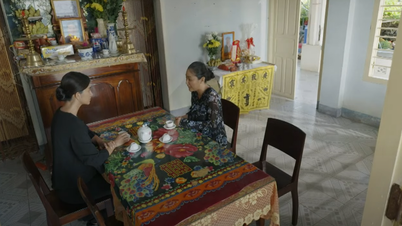



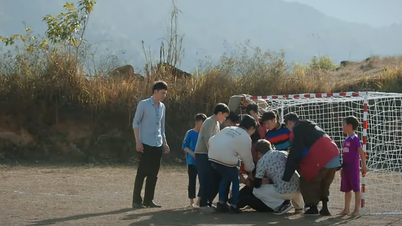











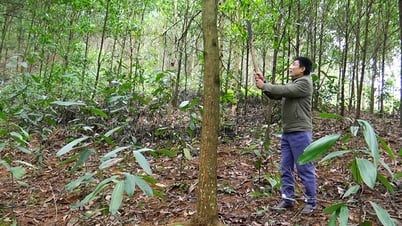










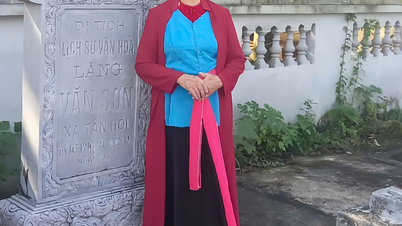
















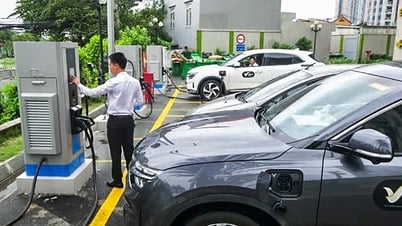

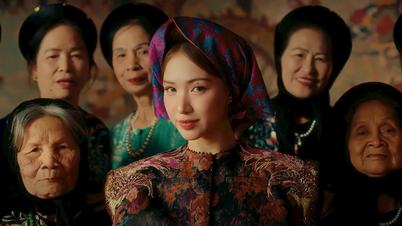









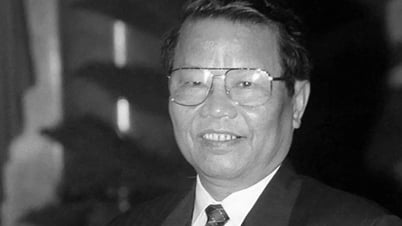
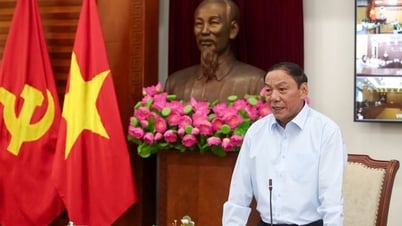







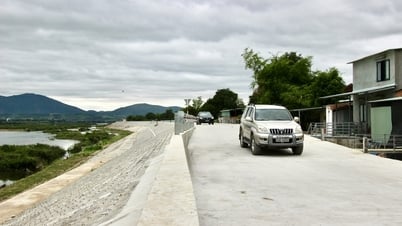





![[Podcast] Week introducing more than 500 OCOP products in Hanoi](https://vphoto.vietnam.vn/thumb/402x226/vietnam/resource/IMAGE/2025/5/22/d144aac2416744718388dbae3260e7fd)




Comment (0)